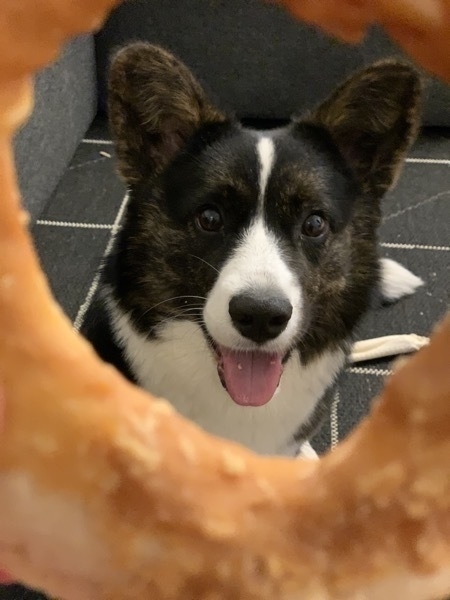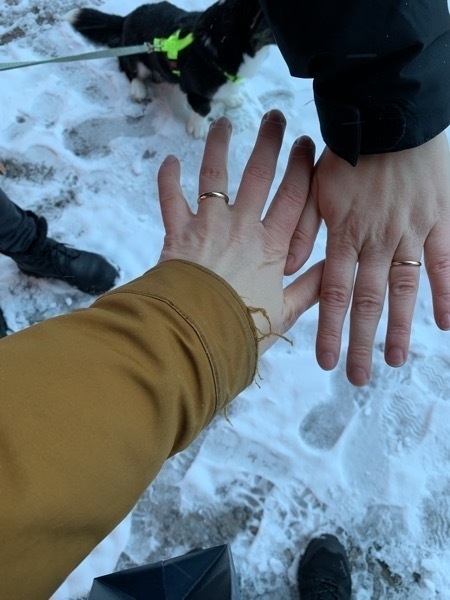This last year was not a great year. I wouldn’t say it was as bad as 2021. But it was a challenging year. 2022 was a year of increasing uncertainty. There was (and is) war happening very close by (or at least that’s how it feels). There is the economic down turn, which touches everything and everyone around me.
I look back and see a year that was defined by trying to get a grip, finally (for the umpteenth time). I was successful for a while, but almost nothing I tried to do stuck throughout the year (and beyond): I did not become a microcaster, an early riser, a newsletter writer, for example. Notable exceptions: Duolingo (500+ days streak) and my DailyDogo series of posts here on the blog. I started a side project that I will claim is still ongoing, even though I have not invested any time into it since mid December.
Now, not all projects are meant to be continuous, or even meant to succeed. I know that and it’s fine. I do appreciate the insight gained from projects more than their outcomes. Nonetheless it is gnawing at me that I do not have a lot to show in terms of progress regarding my own ideas. I feel like I ought to be capable enough to make things (bring side projects to a “version 1” state, continuously publish side projects that are ongoing, like newsletters), change or add habits, transform my surroundings in a positive manner, etc. I feel like I should be able to succeed sometimes, at least.
Let me say it again: Despite what I just wrote, I do appreciate that I have not stood still and it would be wrong to claim that nothing good came out of me trying hard in whatever it may have been. I just feel like that I would like to be able to show something for the effort, something tangible.
Take my note taking system for example: For literal decades (only 2, but that still warrants the plural) I have honed and refined my skill to take notes, to think in notes and therefore am able to think many interesting thoughts beyond what a single “thought session” may come up with. I feel like this makes me good at my job. It actually makes me good at life I’ll claim, because my reflections are more mature and I do know myself better than without. The question is though: If I’m so great, where are the results of me being good? I’m a middling programmer - I do recognize that I started my career later than others and I know that I have not reached my ceiling and am far from it: I even made steps forward to becoming more proficient. But still. I’m an okay writer (or was) - not in English, mind you - but where are the publications? I’m a pretty good thinker - but where are my contributions to a field, any field, that I have had academic training in (history, sociology, anthropology of science and technology and computer science)?
It seems to me that I’m caught in a stage of continuously drafting grand visions of my future if I look back through the many years of yearly reviews I have done. I’m pretty sick of it. In 2022 I already made a change towards not changing my plans, but instead refining them. I count this as my biggest professional success. I made my peace with having a career in software development (now about 5 years in) and am trying to learn more about software architecture (only slightly successful, but nonetheless).

In my private life, our dog has been a great source of happiness. At the same time having a dog is challenging. My family lives about 2000 km away. My partner’s family lives about 800 km away. So visits to either part of the family became much, much harder to organize and carry out. The same is true for vacations. Daily life with a dog is great, but it’s not a neutral thing either: A dog warrants attention, love, decision making and so many different things. Your life will change and it will revolve around the dog a lot. This is maybe not surprising intellectually, but experientially it feels still much different than what it may have looked like beforehand. I do not regret having a dog, as hard as it was raising or quite simply dealing with her this year sometimes, but I won’t say that everything was fine and easy going all the time either. Still, I love her like a crazy dog dad loves his fur child.

We got engaged this year. We are now seven years together. I take this as a great sign that we are truly there for each other - through thick and thin. It was not an easy year. Lots of emotional support was needed. I’m happy to say that I was able to give it, when I could. As an introvert - yep, that’s true even when it comes to my partner - it wasn’t always an easy thing to do, but I can look at myself in the mirror and honestly say that I tried hard in this regard. And I won’t only complain, either: The vast vast VAST majority of our time together has been fun and something to look forward to. I love sharing my life with my favorite person and love having lots of memorable moments together.
I have become a little rounder last year. Maybe two or three kilos - or is it five? A little grayer, too. I’m 36 now. I feel like I’m fine with my age and my looks. “Not having anything to show for the effort”-itis (see above) is surely a sign of getting older, I think and I do recognize that I’m not super young anymore, but getting older is not worrying me. That’s good. I think.
So what will I remember from 2022? Our engagement for sure. How I got sick of grand plans maybe? That 2022 was economically a terrible year and I’m happy that we were not too hard hit? Maybe that I tried hard on many occasions, despite any track record or tangible results?
Maybe I will remember this year as a kind of beacon, like from a light house: On the one hand I had some insights that will surely inform my decision making next year. On the other hand, I came close at times to run aground in the shoals of actual lived adulthood. I have to be careful, but I also want to take heart: I’m looking as ever hopeful into the future. Maybe I’m able to not only claim a realistic approach next year but actually live one also.


